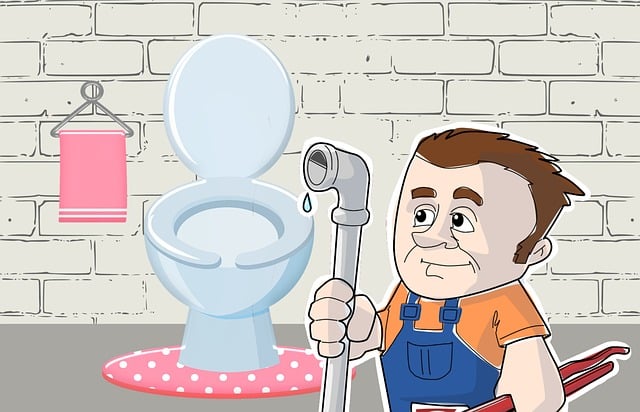Nationally recognized certified plumber specialist certifications ensure quality and safety in plumbing. They validate knowledge, skills, and professionalism, offering peace of mind to consumers. Rigorous exams and assessments by organizations like NAPP and IAPMS confirm proficiency, adherence to standards, and stay updated with industry best practices. Certifications open doors to complex projects, higher earning potential, and professional growth while enhancing home safety and efficiency.
In today’s competitive plumbing industry, becoming a certified plumber specialist can open doors to better career opportunities and enhanced job security. This article explores nationally recognized plumber certifications, focusing on top certifying organizations, rigorous exam requirements, and the numerous advantages of such credentials. Discover how pursuing this specialized certification can elevate your skills and position you as an expert in the field.
- Understanding Nationally Recognized Plumber Certifications
- Top Organizations Issuing Certified Plumber Specialist Credentials
- Exam Requirements for Becoming a Certified Plumber Specialist
- Benefits of Holding a National Certification in Plumbing
Understanding Nationally Recognized Plumber Certifications

Nationally recognized plumber certifications are a crucial aspect of ensuring quality and safety in the plumbing industry. These certifications validate the knowledge, skills, and professionalism of certified plumber specialists, providing assurance to both consumers and businesses. In today’s competitive market, having a certified plumber can offer peace of mind knowing that they adhere to strict industry standards and are equipped with the latest techniques and technologies.
The plumber certification process involves rigorous examinations and practical assessments conducted by reputable organizations. These certifications not only validate technical proficiency but also demonstrate a commitment to ongoing professional development. Additionally, many certified plumbers benefit from enhanced plumber insurance coverage, which can protect them and their clients against potential risks and liabilities associated with plumbing work. Moreover, having nationally recognized certifications can facilitate access to plumbing inspection services, ensuring that installations meet safety and code requirements.
Top Organizations Issuing Certified Plumber Specialist Credentials

In the realm of plumbing, establishing expertise and credibility is paramount, especially when dealing with complex tasks like gas pipe installations or addressing insurance claims. Top organizations have recognized this need and thus, started issuing certified plumber specialist credentials. These certifications are not only a mark of proficiency but also ensure that plumbers adhere to industry standards and best practices.
Among the most respected bodies offering such qualifications are the National Association of Professional Plumbers (NAPP) and the International Association of Plumbing and Mechanical Specialists (IAPMS). Both organizations provide rigorous training programs, examinations, and ongoing education to ensure plumbers are up-to-date with the latest techniques and safety regulations. Their certified plumber specialist programs cater to professionals looking to specialize in various areas, including plumbing for insurance claims, gas pipe specialists, and even beginners taking on their first plumbing projects.
Exam Requirements for Becoming a Certified Plumber Specialist

Becoming a Certified Plumber Specialist involves rigorous exam requirements designed to test knowledge and skills in various plumbing aspects. The journey starts with understanding the specific certification paths offered by renowned organizations. These exams often cover a broad spectrum, including but not limited to, water supply systems, drainage, gas piping, and sewer backup prevention. Candidates must demonstrate proficiency in both theoretical concepts and practical applications.
The preparation process entails an in-depth study of relevant codes, regulations, and industry best practices. Plumber certification benefits extend beyond professional recognition; it empowers specialists to install, maintain, and repair complex plumbing systems with confidence. By adhering to the highest standards, these professionals contribute to ensuring safe and efficient home repairs, enhancing the overall living environment for homeowners.
Benefits of Holding a National Certification in Plumbing

Holding a national certification as a plumber comes with numerous advantages for specialists in this field. First and foremost, it enhances their credibility and professional standing. With a recognized certification, plumbers can demonstrate their expertise and mastery of plumbing codes, regulations, and best practices across different states. This is particularly beneficial when dealing with complex jobs like natural gas line installations or gas appliance installation safety, ensuring compliance and peace of mind for both professionals and clients.
National certifications also open doors to more opportunities, as they are often sought after by employers and clients alike. Certified plumbers may access a wider range of job prospects, from large-scale commercial projects to residential repairs. Moreover, these credentials can lead to higher earning potential due to the specialized skills and knowledge they represent. Ultimately, becoming a certified plumber specialist not only ensures quality workmanship but also paves the way for professional growth and recognition in the diverse plumbing industry.
Nationally recognized plumber certifications, such as those offered by reputable organizations, equip professionals with the knowledge and skills required to excel in the plumbing trade. Becoming a Certified Plumber Specialist involves rigorous exams that test practical abilities and theoretical understanding. This certification brings numerous advantages, including enhanced credibility, improved job prospects, and the ability to work across different states. By obtaining this credential, plumbers can ensure they meet high standards, thereby fostering public safety and satisfaction.
